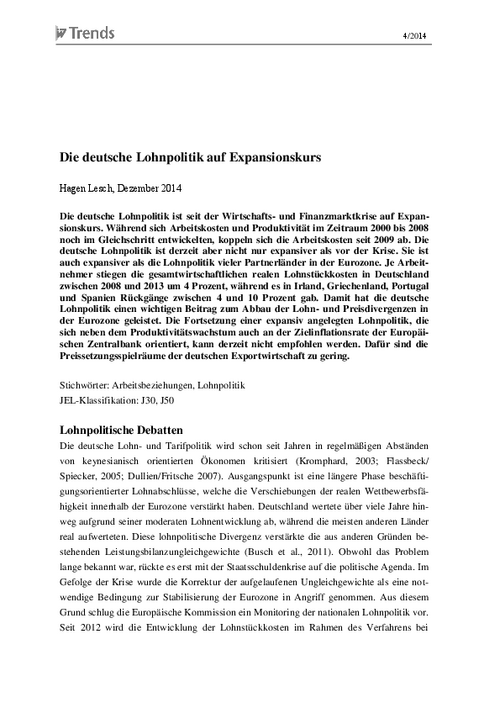Since the latest economic and financial crisis, Germany has had an expansive wage policy. Whereas between 2000 and 2008 labour costs and productivity were still moving in line, since 2009 labour costs have increased at a higher rate. At present, indeed, German wage policy is not only more expansive than it was before the crisis, but also more expansive than its counterparts in other Eurozone countries. Between 2008 and 2013 real unit labour costs per employee increased by 4 per cent in Germany as a whole, while there were falls of between 4 and 10 per cent in Ireland, Greece, Portugal and Spain. German wage policy has thus contributed significantly to reducing wage and price divergence in the Eurozone. However, given the limited scope currently available to German exporters’ in their price-setting, the continuation of an expansive wage policy oriented not only on productivity growth but also on the European Central Bank’s inflation target is not to be recommended.

Germany’s Wage Policy Continues to be Expansive
IW-Trends


Hagen Lesch: Die deutsche Lohnpolitik auf Expansionskurs
IW-Trends

More on the topic

German Wage Policy between Inflation and Stagnation: Are Conflicts with the Aims of Monetary Policy Looming?
After the economic and financial crisis of 2008/9, the German labour market soon began to recover, creating scope for a comparatively expansive wage policy.
IW
The Pros and Cons of Trade Union Membership
The decline in collective bargaining coverage in Germany is often attributed to the reluctance of companies to join an employers' association which negotiates collective agreements.
IW